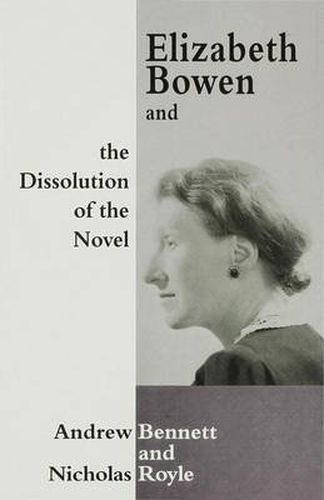Readings Newsletter
Become a Readings Member to make your shopping experience even easier.
Sign in or sign up for free!
You’re not far away from qualifying for FREE standard shipping within Australia
You’ve qualified for FREE standard shipping within Australia
The cart is loading…






This title is printed to order. This book may have been self-published. If so, we cannot guarantee the quality of the content. In the main most books will have gone through the editing process however some may not. We therefore suggest that you be aware of this before ordering this book. If in doubt check either the author or publisher’s details as we are unable to accept any returns unless they are faulty. Please contact us if you have any questions.
Elizabeth Bowen and the Dissolution of the Novel argues that the Anglo- Irish writer Elizabeth Bowen (1899-1973) is one of the most important, though undervalued, practitioner of the twentieth-century novel in English. This is an innovative study with significant implications for contemporary critical and theoretical writing. The authors contend that Bowen’s work calls for a radically new conception of criticism and theory - and of the novel itself.
$9.00 standard shipping within Australia
FREE standard shipping within Australia for orders over $100.00
Express & International shipping calculated at checkout
This title is printed to order. This book may have been self-published. If so, we cannot guarantee the quality of the content. In the main most books will have gone through the editing process however some may not. We therefore suggest that you be aware of this before ordering this book. If in doubt check either the author or publisher’s details as we are unable to accept any returns unless they are faulty. Please contact us if you have any questions.
Elizabeth Bowen and the Dissolution of the Novel argues that the Anglo- Irish writer Elizabeth Bowen (1899-1973) is one of the most important, though undervalued, practitioner of the twentieth-century novel in English. This is an innovative study with significant implications for contemporary critical and theoretical writing. The authors contend that Bowen’s work calls for a radically new conception of criticism and theory - and of the novel itself.